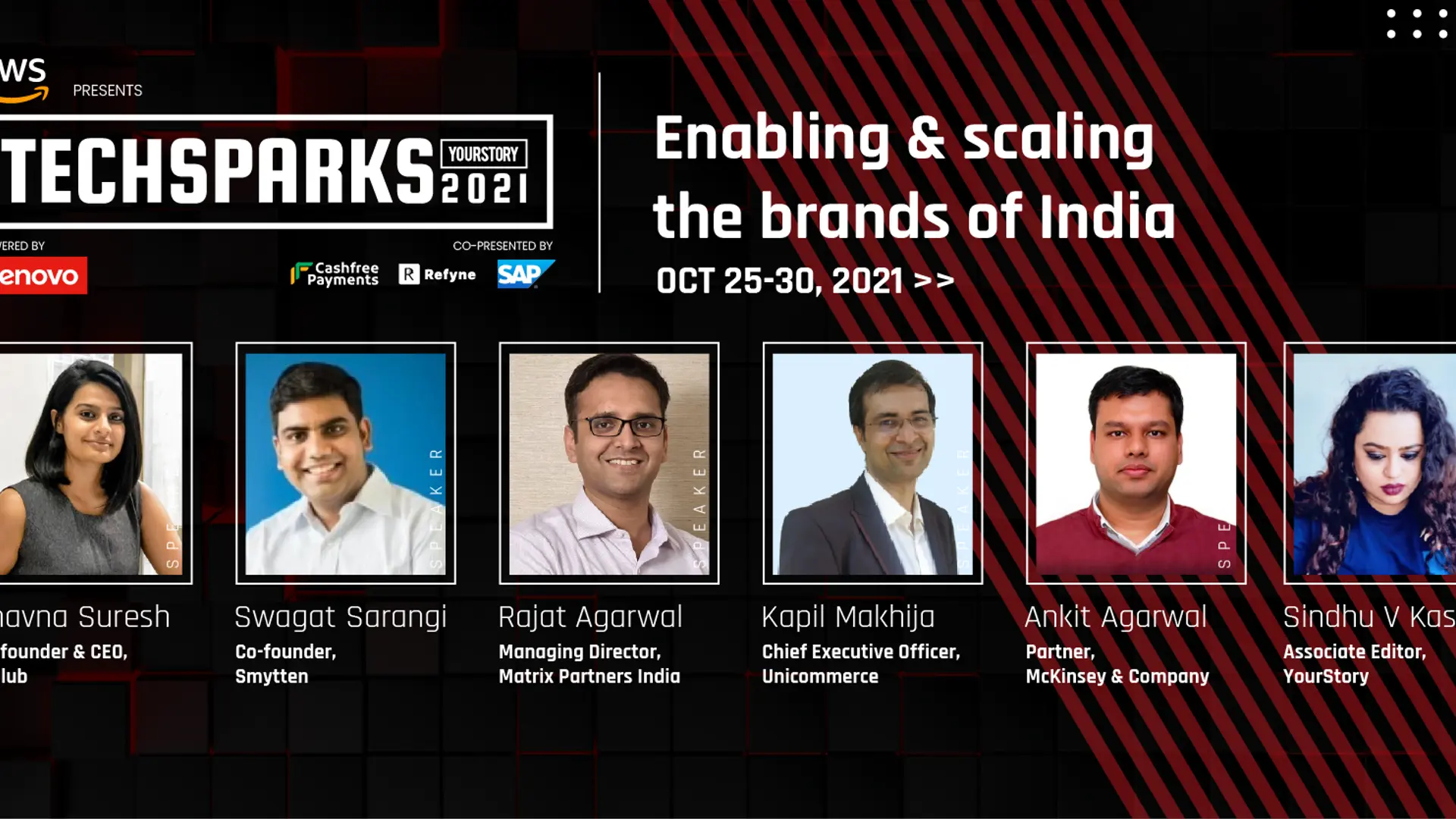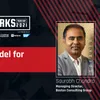Why India's D2C brigade must brace for marketing battle with FMCG giants
Technology and customer retention are vital to counter customer-acquisition costs, said Kapil Makhija of Unicommerce, during a TechSparks 2021 panel-discussion on 'Enabling and scaling the brands of India'.
New direct-to-consumer (D2C) brands will find customer adoption to be far more challenging as the competition is heating up in India, said Swagat Sarangi, Co-founder and CEO of Smytten, on day 5 of TechSparks 2021, India's most influential startup-tech conference, hosted by YourStory.
With the theme 'What's Next: Rethinking the future', TechSparks 2021 is providing a platform for the most defining conversations on how disruptive technology innovations can shape our lives post-pandemic.
Big brands of FMCG giants HUL and Procter & Gamble are expanding their digital marketing budgets, Swagat pointed out, during a panel discussion on 'Enabling and Scaling the Brands of India' on Friday.
As spend levels rise on auction-based advertising platforms, CAC (customer acquisition cost) has already gone through the roof for D2C players, said Swagat Sarangi, CEO of Smytten, India's largest platform for luxury trials and discovery.
While FMCG companies spend up to 9 percent of their sales on marketing, D2C brands are spending between 30 percent and 35 percent of sales on marketing, he noted.
"Everyone is in market-grab mode right now, but somewhere the equilibrium will set in a couple of years," he added.
The TechSparks panel-discussion, moderated by Sindhu Kashyap, Associate Editor, YourStory, featured Swagat, Bhavna Suresh, Co-founder and CEO of 10Club, which acquires, operates and grows ecommerce-first businesses, Rajat Agarwal, Managing Director of Matrix Partners India, a leading venture-capital firm, Ankit Agarwal, Partner at McKinsey & Company, a management consulting firm, and Kapil Makhija, CEO of Unicommerce, a supply-chain software platform.

In the past 18 months, D2C brands have grown exponentially in India. There are more than 650 fast-growing D2C brands operating in segments like fashion, cosmetics, and personal care.
Their adoption was accelerated by the pandemic-induced lockdowns, which pushed more buyers to transact online. Industry estimates peg the number of online buyers to be at least 100 million in 2021, compared to 20 million in 2016.
Bhavna Suresh of 10Club pointed out that D2C brands have so far grown using marketplace platforms, like Facebook and Amazon. "A D2C play requires complete control of end-to-end consumer data," she noted. "When brands start selling largely on online marketplaces, they don't have that complete information."
Kapil Makhija of Unicommerce said the post-purchase experience is also a significant factor for D2C brands to ensure repeat-orders and customer loyalty. "Error rates have to be controlled," he added.
"Technology at every step of the supply chain—from warehouse to last-mile delivery—will help cut down additional costs that brands have to incur to make unit-economics viable," said Kapil of Unicommerce.
In a highly competitive environment, D2C brands have to focus on growing the average basket size, and improving the post-purchase experience to counter the increasing CAC, he said.
Ankit Agarwal of McKinsey & Company said India could produce global D2C brands in electronics, because of the government's production-linked incentive schemes. Similarly, India's textiles industry has the potential to produce global brands because of state governments' focus on the sector.
“As you think global, think of sectors that are ripe where policies are already in place, and there is a natural competitive advantage for India,” he said.
"We have to think of sectors, where India has the right to play, and the right to win—and then scale to win," said Ankit of McKinsey & Company.
Bhavna concurred, saying that India has to find its hooks of what matters, and is unique to India—and amplify that. "All the infrastructure is in place. The time is now," she added.
Kapil said that after India, D2C brands will most likely expand in West Asia, and South East Asia, before focusing on developed markets. Look for markets that have a large Indian diaspora, Bhavna added.
For now, the D2C market in India itself is exciting, asserted Rajat Agarwal of Matrix Partners India. "If you pick any category, there is still a paucity of brands, compared to China, the US, or any western markets.
"This sector is truly humming in India," he said, adding that four out of every five D2C startups that approach Matrix Partners to raise capital are focused on domestic growth.
The question of what is unique and authentic to India will get answered, as D2C brands evolve into large and healthy companies, Rajat said. "As more brands learn the playbook, we will see it happen across categories. As long as manufacturing is competitive, India will produce D2C brands for the world."
To log in to our virtual events platform and experience TechSparks 2021 with thousands of other startup-tech enthusiasts from around the world, join here. Don't forget to tag #TechSparks2021 when you share your experience, learnings and favourite moments from TechSparks 2021.
For a line-up of all the action-packed sessions at YourStory's flagship startup-tech conference, check out the TechSparks 2021 website.

Edited by Kunal Talgeri








